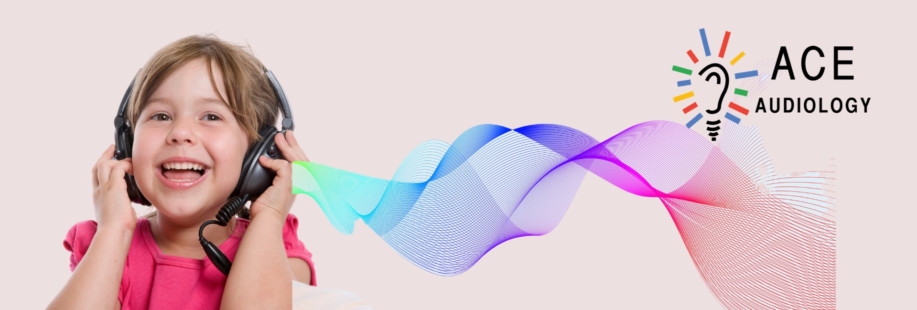Hearing Tests For Children – Medicare
From 1 March 2023 Medicare provides rebates for hearing tests upon referral of a Medical Practitioner.
ACE Audiology Melbourne performs hearing tests for kids and is equipped to assess children of all ages from infancy upwards using a combination of objective, behavioural and subject methodologies.
Hearing children is critical to their speech and language development including their ability to learn. If you have concerns about your child’s hearing do not delay in seeking clarification as to their hearing acuity. Please use our “Contact Us” or “Book Appointment” features of the web page to enquire or request a preferred appointment time respectively.
Types Of Hearing Tests For Children
Ensuring the auditory well-being of children involves various types of hearing tests. Audiologists employ techniques such as pure-tone audiometry, speech audiometry, and otoacoustic emissions tests to comprehensively assess a child’s hearing abilities. Recognising the diverse auditory needs of children, these types of hearing tests provide valuable insights into different aspects of their auditory health.
The panels that follow explain each in greater detail. In brief, however, we have a sound field equipped with a puppet theatre to test infants/toddlers who are old enough to sit but too young to perform a hearing test under headphones. An illuminated puppet appears as a reward for responding to a sound after a brief session of conditioning the response. Above the age of three, most children will accept headphones and can be trained to perform “play audiometry” using a peg board or other activity.
We may also conduct a number of objective tests that do not require the cooperation of the child. This includes Tympanometry, which looks for fluid in the middle ear and Otoacoustic Emissions (OAEs) that test the health of the inner ear. OAEs are used in hospital nurseries to screen the hearing function of newborns and have proven highly reliable, efficient and effective.
The type of hearing test kids can perform varies based on age and cognitive development. Very young infants do not respond to pure tones but rather pay attention to more complex sounds. We use a range of noise makers so as to observe behavioural changes when performing hearing tests for kids in order to assess their hearing, backed up by objective measures as well.
-

Central Auditory Processing Disorders (CAPD)
Children, who struggle academically, without obvious explanation, are often found to have an Auditory Processing Disorder. Upon analysis of a child’s auditory abilities a range of deficits can often be determined. Difficulties ranging from short term auditory memory, auditory sequencing, spatial listening, speech integration and speech in noise amongst other issues can be identified.Read More -
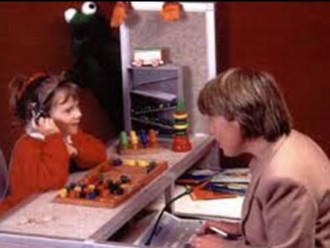
Play Audiometry
Approaching three years of age a toddler can usually perform “play audiometry” by putting a peg into a board after hearing a sound. At around five years of age a child can usually respond pretty much like an adult by pressing a button when they hear a sound.Read More -
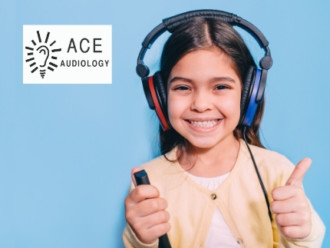
Hearing Tests for Children
As children grow and develop their capability to perform a hearing test evolves. Naturally a newborn or infant cannot cooperate in a conventional manner to test sounds so the Audiologist needs to apply different methods to obtain information regarding their hearing ability. At around three years of age, a child can usually be trained to … Continue reading "Hearing Tests for Children"Read More -
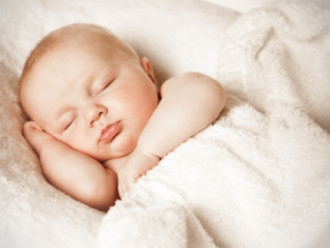
Behavioural Tests
Behavioural tests are performed on infants too young to sit with head control using a puppet theatre methodology when there is a suspicion of hearing loss. This may arise due to a child being on an “at risk” register from birth meeting particular criteria. Newborn hearing screening programs in the maternity ward are performed routinely … Continue reading "Behavioural Tests"Read More -
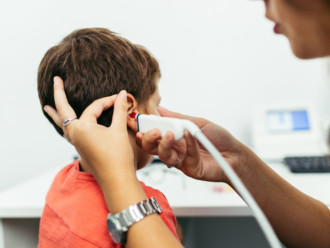
Objective Assessments
Objective hearing assessments do not require any co-operative input from your child in order to obtain information about the status of components of the hearing pathway. Tympanometry, is one objective test, whose main purpose is to obtain information about the functioning of the middle ear. This is performed by placing a probe into the ear … Continue reading "Objective Assessments"Read More -
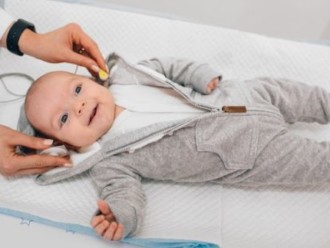
Otoacoustic Emissions
Otoacoustic emissions (OAEs) are becoming a routine component of adult and paediatric hearing assessments. ACE Audiology is equipped to perform this assessment using state of the art diagnostic grade equipment. For this test a small probe is placed into the ear canal and a tonal stimulus is presented. In a healthy ear an echo is … Continue reading "Otoacoustic Emissions"Read More -
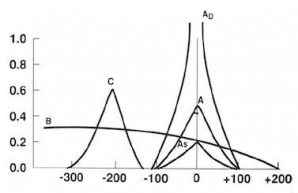
Tympanometry
Tympanometry has been a very reliable and efficient method of assessing the health of the middle ear. Problems with the middle ear lead to conductive hearing losses, which is usually amenable to treatment. A probe is placed in the ear canal and the pressure is varied slightly to see how ear drum sound reflection changes. … Continue reading "Tympanometry"Read More -
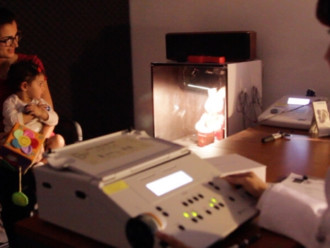
Visual Reinforcement Audiometry
From the age of about 6 months, when a baby can sit and have head control, a sound field methodology using illuminated puppets as a visual reinforcement works a treat.Read More
Choosing the Right Hearing Test for Your Child: Considerations and Benefits
Selecting an appropriate hearing test involves considering factors such as age, developmental stage, and specific concerns. Different types of hearing tests, including online hearing tests for children, offer unique insights.
Understanding the benefits of these tests helps parents and healthcare professionals make informed decisions, contributing to early detection and intervention if any hearing issues are identified. Regular evaluations, including paediatric hearing tests near me, significantly contribute to the overall well-being of children.
Importance of Hearing For Children
Children’s hearing is integral to their cognitive, social, and academic milestones. Optimal hearing is essential for language development, communication skills, and educational success.
Identifying early signs and symptoms of hearing loss in children is crucial for their overall well-being. Routine assessments, including private hearing tests for children, ensure that any potential challenges are detected early, allowing for timely intervention and support.
The Impact of Hearing on Childhood Development: Cognitive, Social, and Academic Milestones
Hearing profoundly influences childhood development, impacting cognitive, social, and academic milestones. Children with optimal hearing excel academically, communicate effectively, and engage socially.
Early identification of hearing issues through routine evaluations, including a free hearing test for children, is vital for providing appropriate interventions and support. Understanding the profound impact of hearing on childhood development underscores the importance of regular monitoring and intervention.
Preparing A Child For A Hearing Test
Preparation is essential for a child-friendly hearing test experience. Parents can play a crucial role in explaining the process to their children, emphasising the importance of cooperation.
Creating a positive and comfortable environment helps alleviate anxiety, ensuring more accurate results. Understanding how to prepare a child for a hearing test, including information on online hearing tests for children, contributes to a successful assessment, fostering a positive attitude towards healthcare experiences.
Tips for Easing Anxiety and Stress Before a Paediatric Hearing Test
To ease anxiety and stress before a paediatric hearing test, parents can employ various strategies. Offering reassurance, explaining the process in a child-friendly manner, and incorporating familiar objects can help create a sense of comfort.
Choosing a reputable healthcare provider with experience in child-friendly evaluations is also key. These tips contribute to a relaxed environment, promoting cooperation during the paediatric hearing test and ensuring accurate results.
Contact ACE Audiology
Is your child experiencing hearing loss? Get a hearing assessment at ACE Audiology and address your child’s hearing problems. Book an appointment or contact us for more information on our children’s hearing tests.
FAQs
At what age should I have my child’s hearing tested?
It is recommended to have your child’s hearing tested shortly after birth as part of the newborn hearing screening process. If any concerns arise or if your child exhibits signs of hearing issues later on, additional testing should be conducted.
Regular evaluations during developmental milestones, such as before starting school, are also advisable to ensure timely detection of any hearing problems.
What are the different types of hearing tests available for children?
Various types of hearing tests are available for children, including pure-tone audiometry, speech audiometry, otoacoustic emissions tests, and tympanometry.
These tests assess different aspects of a child’s auditory function, providing a comprehensive understanding of their hearing health. Paediatric audiometric testing, conducted by our qualified professionals, utilises age-appropriate methods to ensure accurate results.
How is a paediatric hearing test conducted?
A paediatric hearing test involves age-appropriate hearing evaluation methods to determine a child’s auditory abilities. Techniques may include behavioural observation audiometry for infants, visual reinforcement audiometry for toddlers, and play audiometry for older children. These tests, often conducted by private audiologists, aim to make the experience engaging and comfortable for the child.
Are hearing tests for children painless and non-invasive?
Yes, hearing tests for children are typically painless and non-invasive. Audiologists use methods that are safe and comfortable for children, ensuring minimal discomfort during the evaluation process. Consider consulting private audiologists who specialise in paediatric audiological assessments for a personalised and attentive approach.
What are the signs that my child may need a hearing test?
Signs that your child may need a hearing test include delayed speech and language development, difficulty following instructions, frequently asking for repetition, and not responding to sounds or their name being called. If you notice any of these signs or if there are concerns about your child’s hearing, it is advisable to schedule a hearing test.
Can a hearing test identify all types of hearing problems in children?
While hearing tests are effective in identifying many types of hearing problems, they may not detect certain issues, such as central auditory processing disorders.
However, a comprehensive battery of tests, including behavioural and objective measures, increases the likelihood of identifying a wide range of hearing problems in children. Regular and thorough evaluations, along with awareness of symptoms of paediatric hearing impairment, help ensure the early detection of any issues that may impact a child’s auditory health.
